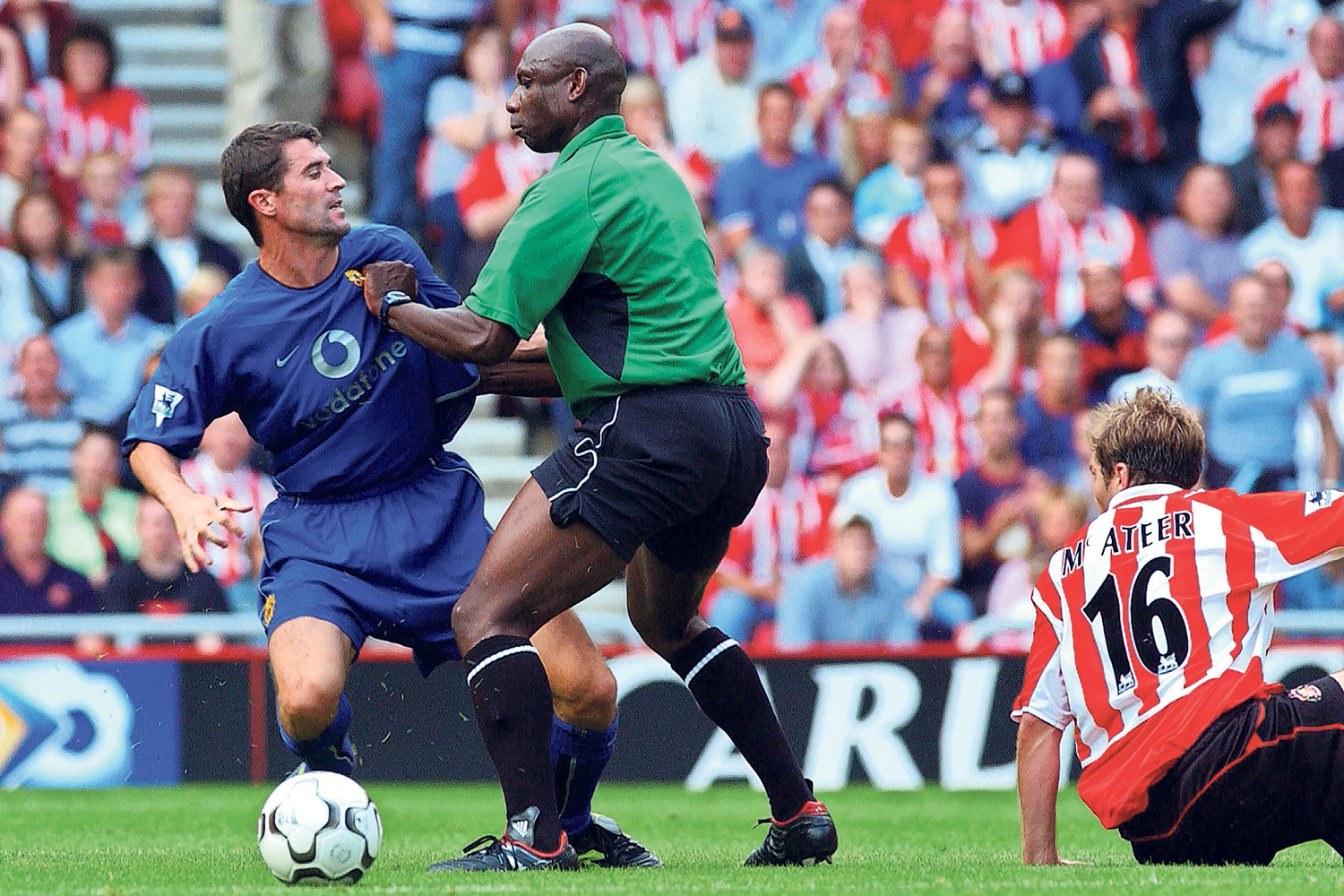Before VAR existed and broadcasters micro-analysed decisions by match officials, Uriah Rennie had already been reckoning with intense scrutiny every game.
Much is made of Rennie’s athletic and sporting prowess, but what came across to me as a young Black man watching him was the respect he commanded on a human level from all those he encountered.
Former Premier League referee Chris Foy was a close friend of Uri, as he was affectionately known – they both came up from the Northern Premier League and were members of the same refereeing group, rooming with each other, and their friendship remained strong.
“The word I’d use about Uri was time,” says Foy. “He always had time for everyone, everyone was an equal. You know, if you were an experienced ref, he taught you, if you were new on the list, he’d talk to you. He had time for everyone. He was a kind, caring, compassionate person, a true gentleman.”
Rennie is rightly celebrated as the first Black referee to officiate in the Premier League, but despite being rubber-stamped as a Fifa-approved official in 2000 and more than a decade as the man in the middle for top-flight games, he often faced adversity while he broke down racial barriers.
His life journey from rural Jamaica to growing up in Sheffield was captured poetically in Ashley Hickson-Lovence’s acclaimed novel, Your Show. Reading Hickson-Lovence’s work in combination with my nascent memories of Rennie taming big personalities like Roy Keane and Alan Shearer led me to seek out why there had not been more Black referees for a long-form project during my degree.
I was hardly surprised when, via an intermediary, Rennie declined to speak with me, jaded by the lack of change in elite refereeing, saying that it had not moved on since he had spoken to a student reporter like me many years before.
But he was still dedicating efforts towards advocating for racial and social justice through organisations in Sheffield, and his impact on that city and its people is unrivalled.
Hickson-Lovence captured this as he built up a rapport with Rennie, having had to fight to win his trust that he was writing the book for the right reasons. “I wanted to find out about this man right at the centre of all the action, with that added complexity of being a referee of colour,” says Hickson-Lovence. “I wanted to unpick what kind of man would do that and what kind of mentality you needed to have.”
Rennie was no stranger to the big moments as a Premier League official. He was the first referee to send off the England captain, Shearer, on the Newcastle forward’s 100th appearance.
Newsletters
Choose the newsletters you want to receive
View more
For information about how The Observer protects your data, read our Privacy Policy
The bravery to break with the unwritten rule that the England captain is beyond reproach is what sticks in my mind.
I regret that we never connected, but what is clear is that his undoubted impact will never leave the lucky few who enjoyed his company.
Photograph by John Peters/Getty Images
